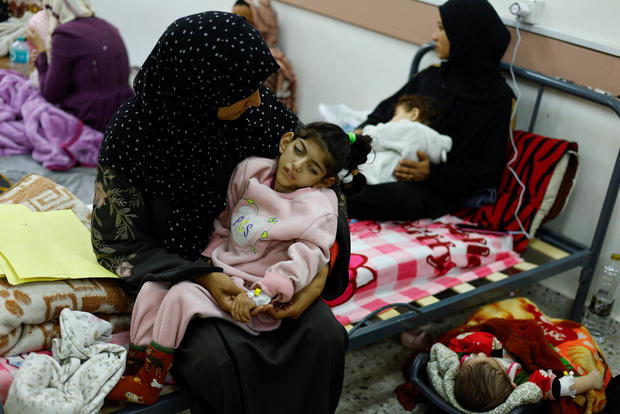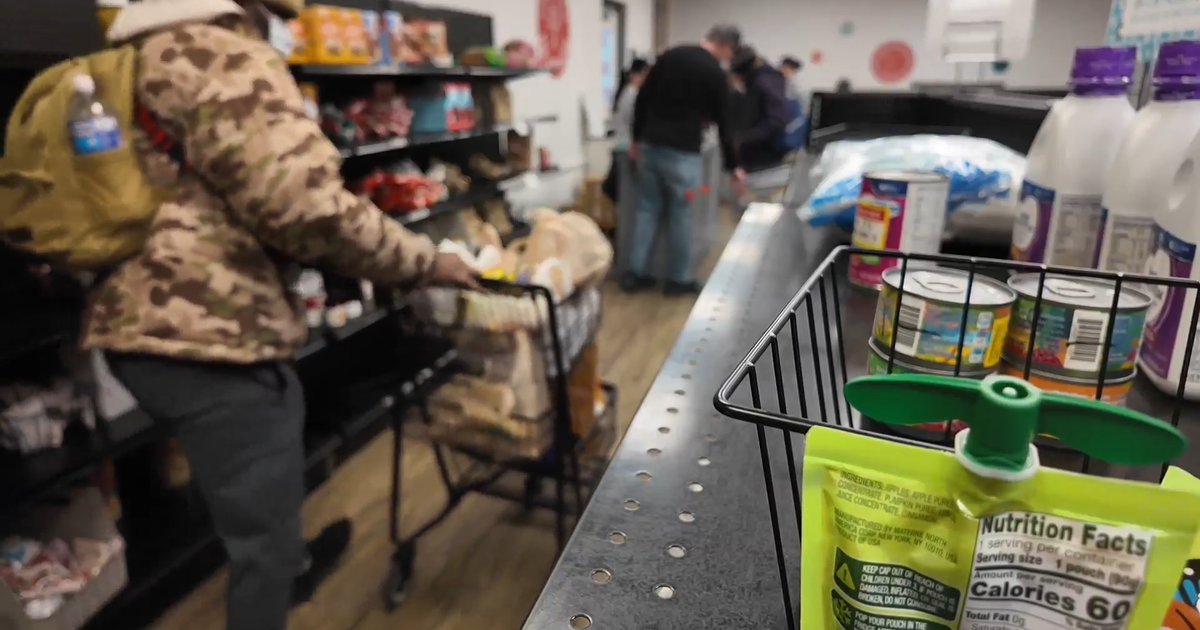Blinken says all of Gaza facing "acute food insecurity" as U.S. pushes Netanyahu over his war plans
Tel Aviv — The entire population of the war-torn Gaza Strip — some 2.3 million people — is now living through "severe levels of acute food insecurity," U.S. Secretary of State Antony Blinken said Tuesday. He spoke amid increasing signs that the U.S. government is losing patience with Israel over its handling of the war with Hamas.
"According to the most respected measure of these things, 100% of the population in Gaza is at severe levels of acute food insecurity. That's the first time an entire population has been so classified," said Blinken during an official visit to the Philippines. "We also see — again, according to, in this case the United Nations, 100% — the totality of the population — is in need of humanitarian assistance. Compare that to Sudan; about 80% of the population there is in need of humanitarian assistance; Afghanistan, about 70%."
Blinken announced that he would return to the Middle East this week to continue with talks aimed at securing a new cease-fire agreement. It will be his sixth visit to the region to participate in the complicated negotiations since Hamas' carried out its massacre on Oct. 7, sparking Israel's ongoing counteroffensive in Gaza.
More than 31,500 people have been killed by the Israel Defense Forces operations in Gaza, according to aid groups and the enclave's Hamas-run health ministry.
The spiraling civilian death toll has tested the patience of the White House.
President Biden and Prime Minister Netanyahu had not spoken in more than a month, until a phone call on Monday.
"The president told the prime minister again today that we share the goal of defeating Hamas, but we just believe you need a coherent and sustainable strategy to make that happen," U.S. National Security Advisor Jake Sullivan said after the call.
The White House also said Mr. Biden had told the Israeli leader that he needs a coherent plan to evacuate the more than one million Palestinians who have taken refuge in Rafah, a final Hamas stronghold that Netanyahu says his forces will invade despite huge pressure to resist a full-scale ground incursion.
On the call, Israel agreed to send a team to Washington to discuss an alternative strategy that would see the IDF focus on limited strikes targeting Hamas operatives.
Biden's frustration was apparent earlier this month, when he said Netanyahu was "hurting Israel more than helping Israel."
Patience is also running out for the families of the hostages captured by Hamas during the group's Oct. 7, attack — including the parents of Itay Chen.
Last week, Israel confirmed the 19-year-old Israeli-American soldier, believed for months to have been among the captives in Gaza, was in fact killed on the day of the massacre. But Hamas is still holding his body as a bargaining chip.
For five months his father, Ruby, has carried an hourglass. The sand leaked out the day he learned his son was dead.
"Even today, after 164 days, he's still a hostage," he told CBS News. "So, our journey is not over yet. As well as the other 174 families."
Ruby Chen and those other family members have tried to pressure Netanyahu to make a deal to bring their loved ones — both dead and alive — back home.
"The price that the government of Israel is paying is not for the 135 hostages," the bereaved father told CBS News. "It's for the colossal disaster, the mistake of October 7th, that civilians were taken out of their beds, little children, moms, daughters, and taken by savages because the state itself was not able to protect them."
But when it comes to ending the standoff with Hamas over the abductees, Chen insisted the world not forget who's ultimately responsible.
"I'm sure that the prime minister wishes to get all of the hostages back as well," he said. "Let us not forget who is the bad guy here: Hamas-ISIS is a terrorist organization."







